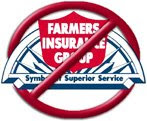Rate increases sought for homeowners insurance
California's three biggest issuers want hikes as high as 9.3%. Insurance chief Steve Poizner's response could affect his political future.
By Marc Lifsher, Los Angeles Times Staff Writer
May 27, 2008
After dropping in recent years, the cost of insuring your home may be about to climb.
California's three biggest insurers, covering more than half of insured homes, have requests for rate hikes pending with Insurance Commissioner Steve Poizner.
How Poizner handles the proposed increases could affect his political future. As the only Republican statewide officeholder, he is being touted as his party's best candidate for governor in 2010.
The wealthy Silicon Valley entrepreneur turned consumer advocate may not want to run on a record of raising insurance premiums paid by millions of homeowners and renters.
"It's going to be very tough for him," said Amy Bach, director of United Policyholders, a national insurance consumer advocacy group. "It's going to hurt him if he approves new rates, and consumers publicize that and are critical of him."
Poizner doesn't fear repercussions from doing whatever he thinks is right, said California Department of Insurance spokesman Darrel Ng. "He is confident that should he decide to run for future political office, his good policies will be good for him politically," Ng said.
Third-ranked Allstate Corp. is seeking a rate increase of 9.3%. Industry leader State Farm General Insurance Co. and No. 2 Farmers Group Inc. are asking for a 6.9% hike.
All three companies have earned solid profits in recent years. In general, insurers say that they need more revenue from customers to cover a jump in the severity of individual claims and inflationary pressures on the cost of rebuilding homes damaged by fires and high winds -- although they didn't offer more detailed explanations for their rate increase requests.
"There's been an increase in materials for rebuilding and remodeling, and labor costs have gone up," said Jerry Davies, a spokesman for Farmers, a unit of Zurich Financial Services.
State Farm spokesman Bill Sirola acknowledges that his company "made significant profits in California between 2003 and 2007" and stresses that "those good times allow us to rebuild the capital we need for the bad times" that are sure to come.
Allstate, which recently limited its potential losses by refusing to take on new residential customers in California, contends that higher rates would enable it to increase its financial reserves so that the company could be prepared for future disasters, such as wildfires or earthquakes.
Consumer advocates counter that California insurers have little basis for raising rates. According to the Department of Insurance, insurers of residential properties paid 71 cents in claims for every $1 in policyholders' premiums last year. Most financial losses had more to do with weak performance of insurer investment portfolios related to the sub-prime mortgage meltdown, consumer groups say."Insurance companies are doing badly in the stock market, and they are trying to recoup their losses from policyholders' pocketbooks," said Harvey Rosenfield, the consumer attorney who wrote Proposition 103, an initiative approved by California voters in 1988 that increased government regulation of insurance rates.Poizner is reviewing all three filings. Last May, however, he hinted he might reject Allstate's proposal and possibly order it to rebate customers should any charges be deemed excessive.
The Allstate filing, the subject of a hearing before a Department of Insurance administrative law judge, was submitted close to the end of former Insurance Commissioner John Garamendi's tenure in 2006.
Garamendi, a Democrat now serving as lieutenant governor, at the time had ordered Allstate, State Farm, Farmers and Safeco Corp. to cut rates because their customers had been filing fewer and less costly claims.
State Farm and Safeco subsequently lowered their premiums by 20% and Farmers reduced its rate by 18%. Only Allstate fought Garamendi, and later, Poizner, by seeking a substantial rate increase.
Sirola, the State Farm spokesman, welcomed the 2006 price cuts and boasted that lower rates would make the company more competitive, especially with Allstate.
But now State Farm and Farmers have changed their tune.
"We see an increase in the cost of claims," Sirola said. "We've tracked these trends over a number of years."
Allstate, meanwhile, said it felt vindicated by its chief competitors' asking Poizner for rate increases.
"It seems to show that this is an issue affecting the industry across the board," company spokesman Peter DeMarco said.
Some consumer activists, who applauded Poizner's tough stand with Allstate, say they're worried the insurance commissioner may be warming to companies' petitions to raise rates. As evidence, they point to new regulations issued last month by Poizner that critics claim were hastily considered and make it easier for companies to win approval for future rate increase requests.
Companies "see an opportunity to make more money from Commissioner Poizner," Rosenfield said. "I think they see a better chance of soaking the policyholder under Poizner than under Garamendi."
As California's insurance regulator, Poizner does not want to prejudge any company's legal filings, said Ng, the state insurance department spokesman.
He says Poizner is committed to approving rates that are fair to insurers and consumers.
"Just because companies ask for an increase doesn't mean it will be granted," Ng said.
marc.lifsher@latimes.com
Source:
latimes.com
Labels: california, farmers insurance


